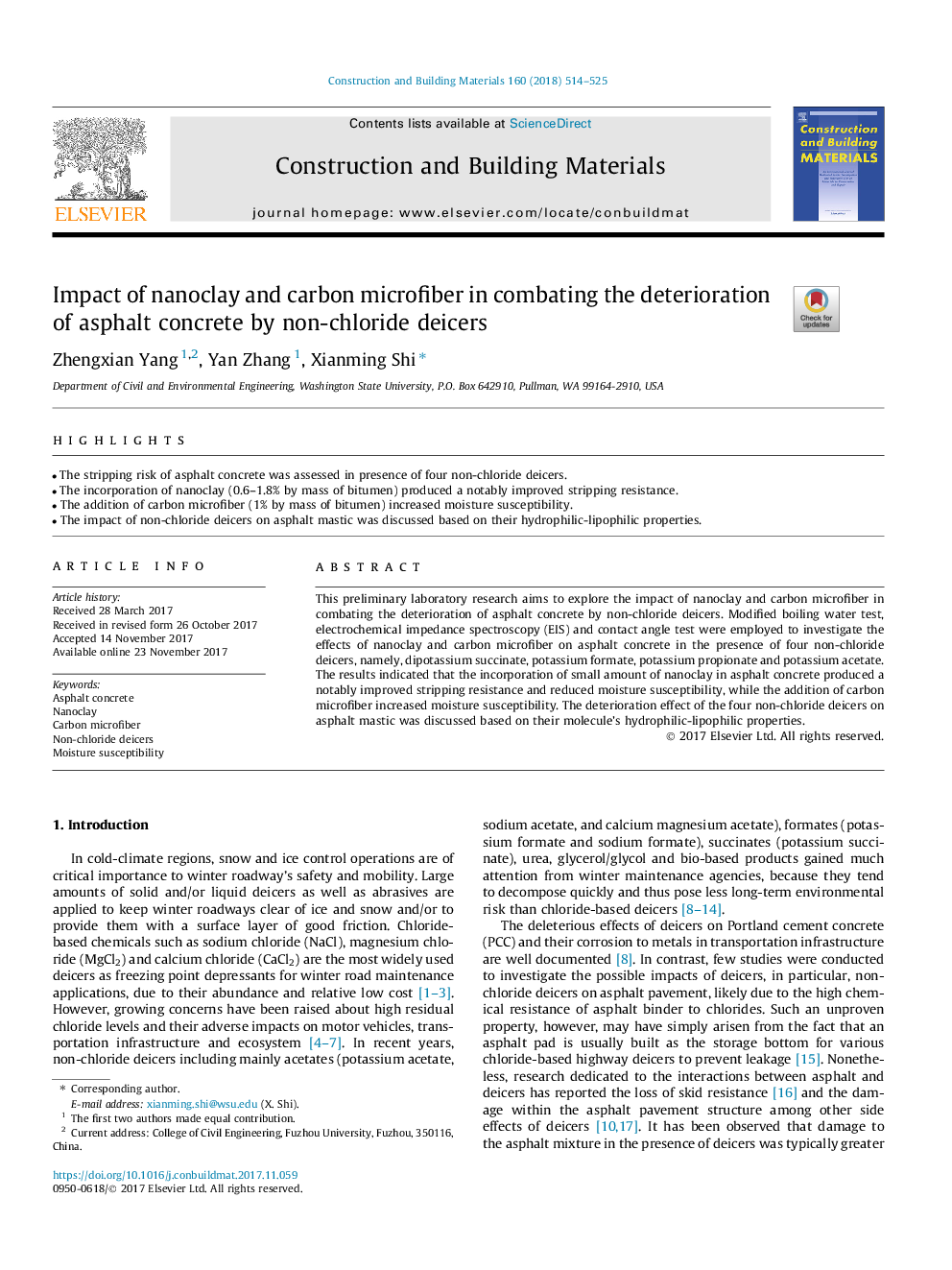| Article ID | Journal | Published Year | Pages | File Type |
|---|---|---|---|---|
| 6717107 | Construction and Building Materials | 2018 | 12 Pages |
Abstract
This preliminary laboratory research aims to explore the impact of nanoclay and carbon microfiber in combating the deterioration of asphalt concrete by non-chloride deicers. Modified boiling water test, electrochemical impedance spectroscopy (EIS) and contact angle test were employed to investigate the effects of nanoclay and carbon microfiber on asphalt concrete in the presence of four non-chloride deicers, namely, dipotassium succinate, potassium formate, potassium propionate and potassium acetate. The results indicated that the incorporation of small amount of nanoclay in asphalt concrete produced a notably improved stripping resistance and reduced moisture susceptibility, while the addition of carbon microfiber increased moisture susceptibility. The deterioration effect of the four non-chloride deicers on asphalt mastic was discussed based on their molecule's hydrophilic-lipophilic properties.
Related Topics
Physical Sciences and Engineering
Engineering
Civil and Structural Engineering
Authors
Zhengxian Yang, Yan Zhang, Xianming Shi,
